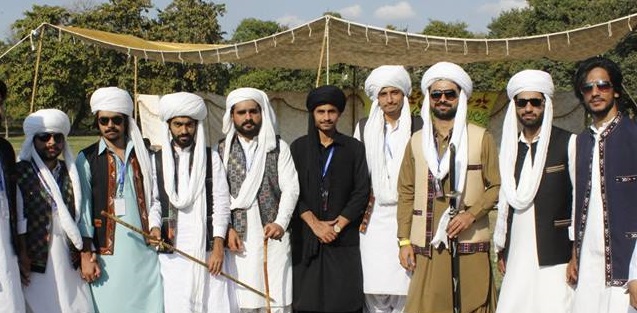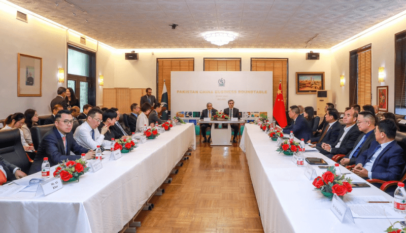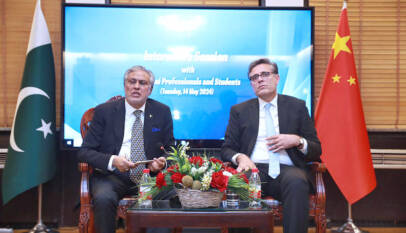Government should include CPEC in the universities curriculum to prepare Baloch people for future
Building the western route of CPEC would not only develop the backward districts of Balochistan and K-P but will also integrate them with national markets. Gwadar is the epicentre of CPEC, so Balochistan will become prosperous even if there is no western route. To eliminate the anti-CPEC propaganda in Baloch society, the government needs to overcome the trust deficit between the Baloch community and security agencies by engaging them in dialogues and embracement, engaging measures. It should also consider being less secretive about the terms agreed under CPEC projects. Baloch people, especially people of Gwadar, should be taken on board and involved regarding such matters. The government needs to add CPEC as a topic in the universities curriculum; especially it should be read and discussed in Balochistan to train the local population of upcoming opportunities and obstacles. Baloch should get all basic necessities of life under the CPEC framework.
The One Belt One Road (OBOR) is kind of a revival of the centuries-old silk route that connected the world to the centre of the globe (areas surrounding the Mediterranean and the Caspian Sea). This was once a hub of linguistics, culture, commerce, trade and religious activities.
Balochistan is Pakistan’s largest province in terms of landmass and enjoys an important geostrategic position because of its proximity with the Middle East, Central Asia, South Asia and the Indian Ocean. With the recent developments ahead in sight of the CPEC, major world powers are shifting their focus to Gwadar, which is the central piece, or in my words, Koh-e-Noor, of the whole CPEC project. It is, geographically speaking, quite close to the Strait of Hormuz, through which 20 per cent of the total global oil production passes through. The likely CPEC network of roads and rails would provide China with an easy and much shorter trade route to the markets of Europe, Gulf and Africa.Given the significance of Gwadar and Balochistan province, several analysts and researchers have questioned about the welfare of the locals residing in the region. Interestingly, the state narrative is all praises for the CPEC while the counter-state narrative (concerning the Balochs) is loaded with concerns about how much Balochs will get out of this multi-billion dollar project, being termed a “game-changer.”One major chunk of the experts and intelligentsia in Pakistan believes that CPEC will definitely bear its fruits in the future as the Western route will open up the backward districts of Balochistan and southern KPK and integrate them with the national markets. This would bring opportunities for employment and small businesses to the masses of the least developed areas in the country. The opposite school of thought has gone to the extent of calling it neo-colonisation on the pattern of East India Company’s takeover of the subcontinent.The state narrative is all praises for the CPEC while the counter-state narrative is loaded with concerns about how much Balochs will get out of this multi-billion dollar projectBalochistan and Gwadar are very crucial to the development of CPEC even if the Western route is not developed at all. Without Gwadar, there is no CPEC. So this is plain common sense that to complete the CPEC and achieve its desired aims, the trust deficit between the (civil and security) establishment and the Balochs needs to be bridged up. The Federal Government and the Security Forces need to make a serious effort to resolve the conflict, not just manage it through force or coercion. Rather, this time, co-option, engagement and dialogue should be a strategy. The first step to achieve this is to be less secretive about the projects under the CPEC and the share of each province in the jobs and revenue. To make it a real game-changer, we need to engage people, especially the ones who have high stakes in it, for example, the Balochs, particularly those living in Gwadar and the areas adjacent to it.The government of Pakistan should de-centralise the programme of development and train locals through proper vocational training. The CPEC should be introduced as a part of the curriculum in different universities within Balochistan (and other areas) to develop local expertise on the topic and, hence, prepare them for the future challenges as well as opportunities.Henry Kissinger once said, “Control oil and you control the nations; control food and you control the people.”If you can provide the Balochs with basic necessities of life in the guise of the CPEC, then yes, it does have the potential of being a game-changer for the entire region.
Ambassador Zaidong highlights China’s embrace of innovation for sustainable development in Pakistan partnership
In recent months, the term “new quality productive forces” has sparked intense discussions…











